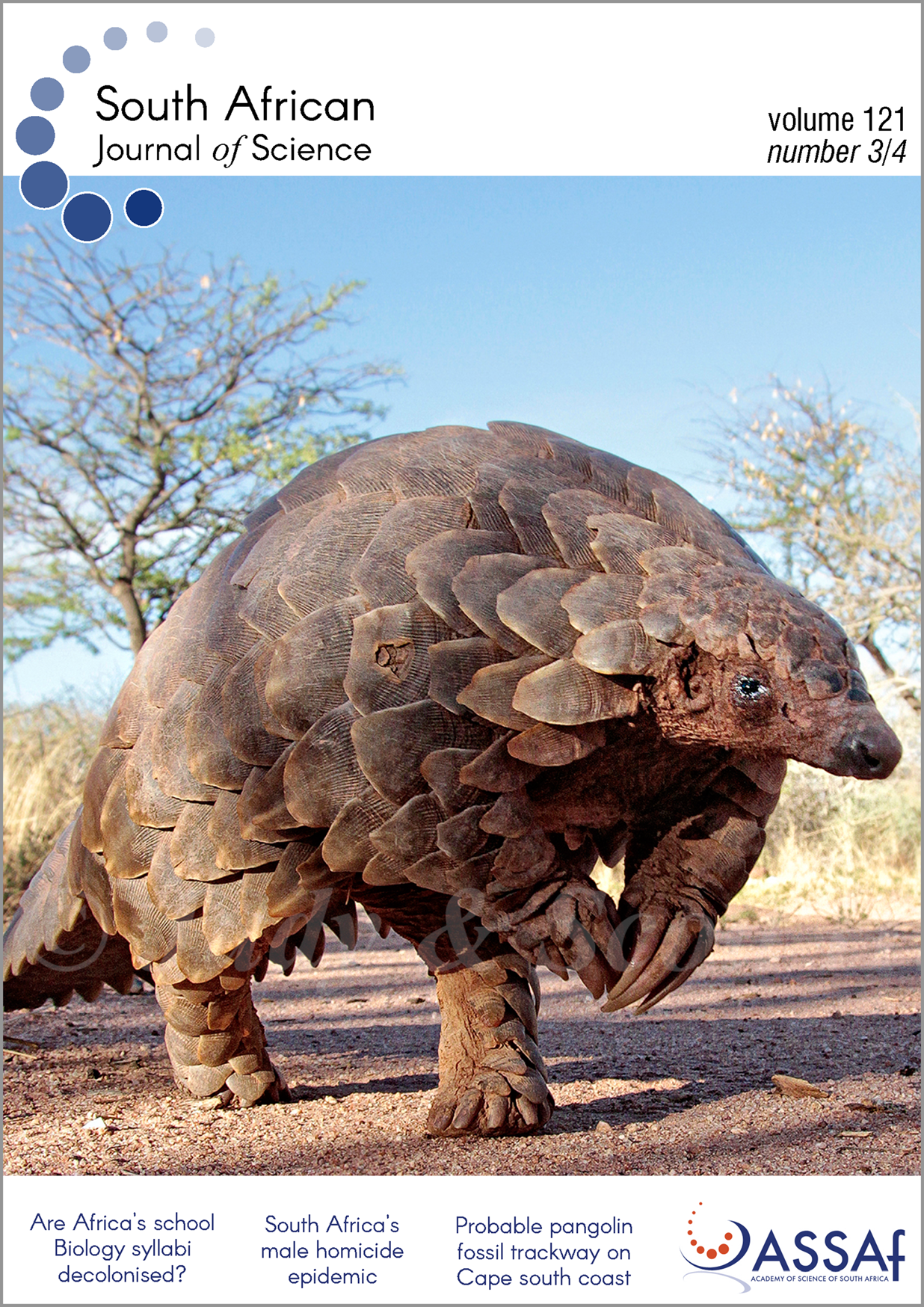Influence of Cambridge International Education on environmental content in seven African syllabi
DOI:
https://doi.org/10.17159/sajs.2025/18607Keywords:
decolonisation, Indigenous knowledge, ecology, environmental issuesAbstract
Cambridge International Education (CIE) presents a Western science based generic syllabus for use in foreign countries. Amid calls to decolonise the curriculum, this study investigated the extent to which seven African countries have decolonised the ecological and environmental content of their biology syllabi by departing from CIE. A decolonised syllabus may reduce the alienation students experience when they encounter Western science by infusing African epistemology into the syllabus, incorporating Indigenous knowledge, and using relevant familiar examples to illustrate scientific concepts. The seven African biology syllabi presented a Western science perspective, with five syllabi exhibiting CIE influence, ranging from very close similarity (Namibia and Lesotho) through some similarity (Rwanda and Botswana) to mostly dissimilar (Malawi). Uganda and South Africa displayed little CIE influence and incorporated more relevant content than other countries. Countries other than Botswana, Uganda and South Africa chose inappropriate examples to illustrate concepts and neglected the local environment and local Indigenous knowledge. Although all seven countries developed their own syllabi, sometimes in collaboration with CIE, not all have decolonised or contextualised their biology syllabi.
Significance:
This paper shows that seven African countries have adopted Western science epistemology for the ecology and environment sections of their biology syllabi. Five syllabi follow CIE syllabi to some extent, and few include Indigenous knowledge and content relevant to local context. I conclude that few of the seven countries have decolonised their syllabi.
Downloads
Published
Issue
Section
License

All articles are published under a Creative Commons Attribution 4.0 International Licence
Copyright is retained by the authors. Readers are welcome to reproduce, share and adapt the content without permission provided the source is attributed.
Disclaimer: The publisher and editors accept no responsibility for statements made by the authors
How to Cite
- Abstract 334
- PDF 463
- EPUB 134
- XML 309
- Supplementary material 217
- Peer review history 227













.png)